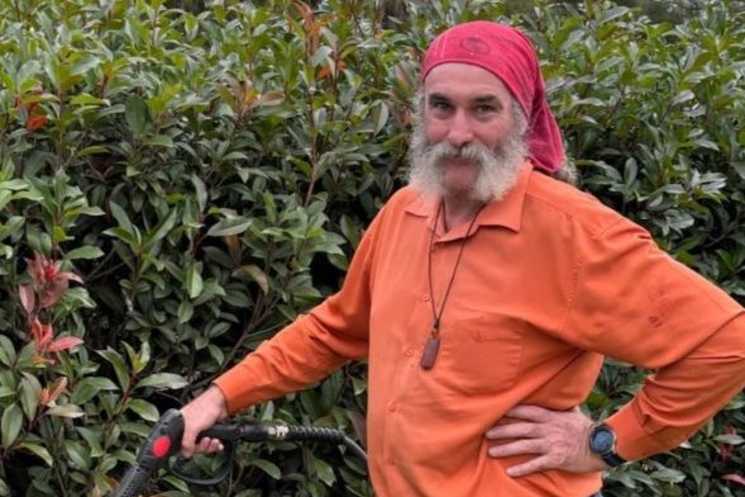
Queensland smallholder Trevor Hold using the hot water treatment system to kill fire ants.
A LEADING Australian entomologist has broken ranks with conventional fire ant control orthodoxy, joining forces with a Queensland smallholder to trial a chemical-free method that may offer new hope in the fight against the invasive species.
Professor Nigel Andrew, an insect ecologist at Southern Cross University, is working with Adare man Trevor Hold to assess whether a hot water treatment system – adapted from a method pioneered in the United States – could serve as a viable alternative to chemical baiting in South East Queensland.
The patented system, developed by fire ant expert Dr Joshua King at the University of Central Florida, delivers water heated to 90°C directly into fire ant nests, targeting queens and larvae without the need for pesticides.
Mr Hold, licensed through the university’s Office of Technology Transfer, is now conducting field trials across high-risk zones including Stockleigh and Jimboomba.
“Science has demonstrated time and again that integrated approaches to pest management deliver better results,” Mr Hold said.
“A chemical-only strategy risks community resistance, collateral damage to native species, and long-term ineffectiveness.”
Since their discovery near Brisbane in 2001, fire ants have spread relentlessly across South East Queensland despite a national eradication effort that has cost more than $1.28 billion.
Queensland alone has contributed $61 million in recent years, but the ants continue to advance at an average of six kilometres per year.
The current program relies heavily on chemical baits laced with insect growth regulators and neurotoxins such as fipronil – a substance banned in 49 countries due to its ecological impacts.
Professor Andrew said it was time to reconsider that approach.
“Any poison has an ecological cost,” he said. “These aren’t fire-ant-specific toxins – they harm whatever organisms forage on the bait.
“I understand the urgency of stopping fire ants. But I also understand why farmers don’t want chemicals on their land.”
Professor Andrew, who has joined Mr Hold in evaluating the system’s effectiveness in the field, said early results were promising.
“It’s basic, honest science – no tricks, just data,” he said.
“It’s a direct system. It hits the nest, no drift, no chemicals. If it works, it’s a no-brainer.”
He said the goal wasn’t to compete with the current eradication program, but to strengthen it.
“We’re not looking for a silver bullet. We need a toolkit – different methods for different situations,” he said.
Professor Andrew also warned about the unintended ecological fallout of widespread chemical use – particularly the threat to Australia’s native ant populations.
“Australia has the most diverse ant fauna in the world,” he said.
“Native ants aren’t pests. They’re ecosystem engineers – dispersing seeds, aerating soil, and feeding wildlife like birds and echidnas. Fire ant pesticides poison them too.”
He said understanding how native species interact with invasive ones could hold the key to longer-term ecosystem resilience.
“Some native ants compete with fire ants. Others coexist. If we stop using chemicals, how do those native populations respond? Do they come back? That’s what we need to find out.”
Professor Andrew saw the potential for the wider deployment of the hot water treatment method if it were to be supported with investment and scaling.
“Trevor’s only got one trailer and a couple of helpers. To make it work at scale, we’d need more units, more teams,” he said.
“But the method’s strength is its precision. You see a nest, you treat it directly. No waste. No guesswork.”
Professor Andrew acknowledged the scepticism surrounding the method.
“It’s not witchcraft. This is a method developed by entomologists who understand ant biology. It’s grounded in science,” he said.
The ultimate goal, he said, was to gather meaningful data – not only about what worked, but also what doesn’t.
“We need to be honest about the success rates of all control methods, not just this one,” he said.
For Professor Andrew, the fire ant fight is about building a better-informed future.
“This method won’t solve everything,” he said.
“But it could become a valuable part of the arsenal – if we let the data lead us.”





